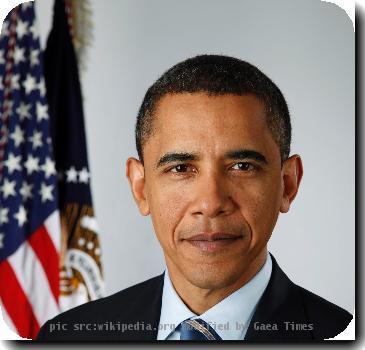Possible al-Qaida attacks cited as US, UK embassies remained closed for second day on Monday
By Lee Keath, APMonday, January 4, 2010
Possible terror attack cited in embassy closings
SAN’A, Yemen — Citing continued security threats, U.S. and British officials said their embassies in Yemen were closed a second day Monday.
In a posting on its Web site, the U.S. Embassy in San’a said the closing was “in response to ongoing threats by al-Qaida in the Arabian Peninsula (AQAP) to attack American interests in Yemen.”
Al-Qaida has several hundred members in Yemen and is actively planning attacks against U.S. targets, the White House said Sunday as the U.S. and Britain announced the embassy closings.
Speaking from Washington during appearances on four Sunday talk shows, President Barack Obama’s top counterterrorism adviser, John Brennan, cited “indications al-Qaida is planning to carry out an attack against a target” in the capital, possibly the embassy, for the closure. A State Department spokesman, Fred Lash, said the closure was not permanent but reopening would be assessed day to day, based on the perceived threat to U.S. personnel.
The U.S. is worried about the spread of terrorism in Yemen, a U.S. ally and aid recipient, Brennan said, but doesn’t consider the country a second front with Afghanistan and Pakistan in the fight against terrorism.
As to whether U.S. troops might be sent to Yemen, Brennan replied: “We’re not talking about that at this point at all.” He pledged to provide the Yemeni government with “the wherewithal” to take down al-Qaida.
Britain and the United States are assisting a counterterrorism police unit in Yemen as fears grow about the increasing threat of international terrorism originating from the country.
The Obama administration claims the suspect in the failed Christmas Day bomb plot against a Detroit-bound jetliner was trained and armed by the al-Qaida affiliate in Yemen. Brennan blamed a series of what he called lapses and human errors in U.S. intelligence and security defenses for allowing a Nigerian man to board the plane with explosives. Passengers and crew subdued the suspect when he tried to set off the explosion as the aircraft approached Detroit; he succeeded only setting himself on fire.
The Transportation Security Administration announced Sunday that, starting Monday, passengers flying into the United States from Nigeria, Yemen and other “countries of interest” will be subject to enhanced screening techniques, such as body scans and pat-downs.
Yemen is a poor, decentralized and predominantly Muslim country on the Arabian Peninsula. It is the ancestral homeland of al-Qaida leader Osama bin Laden, and the site of the 2000 bombing of the USS Cole, which killed 17 U.S. sailors. A 2008 attack on the U.S. Embassy killed one American.
Given the active threat from al-Qaida, “we’re not going to take any chances,” Brennan said.
Sen. Joe Lieberman identified three instances in which terrorists or sympathizers penetrated or evaded U.S defenses last year — shootings at a military recruiting station and an Army base and the airline attack — and said all three were linked to Yemen.
A security official, speaking on condition of anonymity because he was not authorized to talk to the press, told The Associated Press that the embassy closure was not based on any information provided by Yemeni officials about a threat.
The Yemeni government is friendly to the West but the population is often mistrustful of Western motives and influence. Yemen has pledged to clamp down on militancy, but government control is weak outside the capital and the country has a history of freeing some alleged militants and tolerating others.
The Obama administration is growing more vocal about both the threat and the San’a government’s limitations. Brennan said Westerners are at risk in Yemen until the government gets a better handle on extremism.
The U.S. will look case by case at whether to repatriate the remaining approximately 90 Yemeni detainees held at the Guantanamo Bay prison camp, Brennan said.
Seven of 42 Guantanamo detainees freed by the Obama administration were returned to Yemen, Brennan said, but doubts about the country’s ability to police further freed detainees is a major obstacle to Obama’s plan to shut down the facility. Brennan reaffirmed the U.S. administration’s support for the closure, but said that regarding the Yemeni detainees, nothing would be done to put U.S. citizens at risk.
Gen. David Petraeus, the U.S. general who oversees the wars in Iraq and Afghanistan, made a surprise visit to Yemen over the weekend. Following meetings with President Ali Abdullah Saleh, Petraeus announced that Washington this year will more than double the $67 million in counterterrorism aid that it provided Yemen in 2009.
The U.S. and Britain are funding a counterterrorism police unit in Yemen, and Britain plans to host an international conference Jan. 28 to come up with a strategy to counter radicalization in Yemen.
Gearan reported from Washington. Associated Press writers Meera Selva in London and Ahmed Al-Haj in San’a contributed to this report.
On the Net:
State Department background on Yemen: tinyurl.com/y8zcx29
White House: www.whitehouse.gov/
U.S. Embassy in Yemen: yemen.usembassy.gov/
British Foreign Office: www.fco.gov.uk/en/
Tags: Barack Obama, Christmas, District Of Columbia, Embassies, Middle East, National Security, North America, San'a, Sana'a, Terrorism, United States, Yemen







